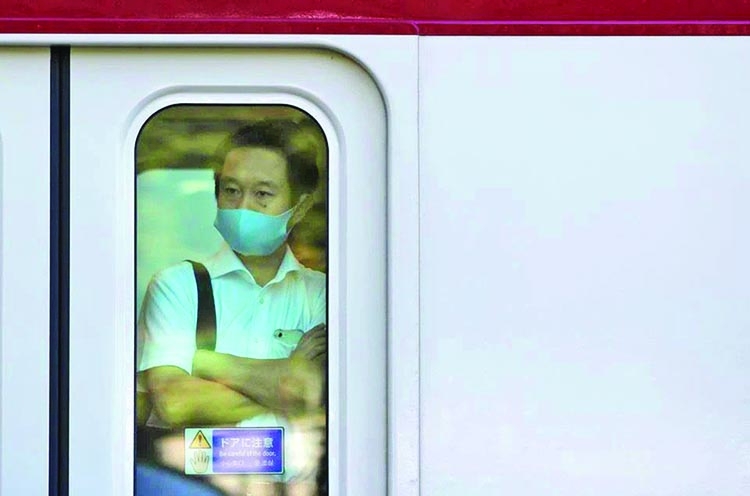Japan to extend emergency lockdown as cases surge

Japan was set today to extend its state of emergency in Tokyo and other regions to Sept. 12 and widen curbs to seven more prefectures, as Covid-19 cases spike in the capital and nationwide, burdening the medical system. The current state of emergency is due to expire on Aug. 31, but a continuing surge in corona virus cases has spurred calls for an extension. Tokyo announced 4,377 new daily cases today, after a record 5,773 on Friday.
The state of emergency will cover slightly less than 60 per cent of the population after the government adds the prefectures of Ibaraki, Tochigi, Gunma, Shizuoka, Kyoto, Hyogo and Fukuoka. "Many experts expressed an extremely strong sense of crisis about the medical care situation and the status of infections," Economy Minister Yasutoshi Nishimura said after getting approval from a panel of public health advisers for the expansion.
Prime Minister Yoshihide Suga is expected to formally announce the move later today. He will then hold a news conference at 9:00 p.m. (1200 GMT) to explain the decision. The corona virus curbs include asking restaurants to close early and stop serving alcohol in exchange for a government subsidy.Worries about the infectious Delta variant of the corona virus detracted from upbeat earnings today, with the broad Topix ending about half a per cent lower.
Japan's case fatality rate, a common measure of Covid-19 deaths across the globe, stands at about 1.3 per cent, relative to 1.7 per cent in the United States and 2.1 per cent in Britain. But health experts worry that deaths could spike in Japan as the Delta variant rages through the younger population and hospitals become too packed to treat serious cases.
Over 80 per cent of Tokyo's critical care beds are occupied. and the rate is already 100 per cent in neighboring Kanagawa prefecture. Dai-ichi Life Research Institute estimated in a report that the government's extended and expanded state of emergency would lead to a total economic loss of about ¥1.2 trillion (US$10.98 billion) and could slash 66,000 jobs.
